ASAP: Literary Criticism
Virtual presence for attendees and those interested in the 2022 annual meeting of the Association for the Study of the Arts of the Present. Books on sale, University of Minnesota Press information, and more.
UNIVERSITY OF MINNESOTA PRESS: 40% OFF BOOKS
All books below are 40% off using code MN89700. Code expires November 15, 2022.
BROWSE BOOKS:
PHILOSOPHY AND THEORY // ART AND MEDIA // ENVIRONMENT
POLITICS AND ACTIVISM // ANIMALS AND SOCIETY // ANTHROPOLOGY
SCIENCE AND TECHNOLOGY // DIGITAL CULTURE // ETHNOGRAPHY
RACE // GENDER AND SEXUALITY // GEOGRAPHY
LITERATURE // LITERARY CRITICISM // DISABILITY STUDIES
-
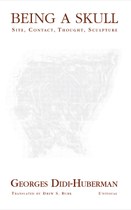 Being a Skull
Place, Contact, Thought, Sculpturesee
Georges Didi-Huberman
2016 Fall
Being a Skull
Place, Contact, Thought, Sculpturesee
Georges Didi-Huberman
2016 Fall
- A renowned art historian’s exploration of the work of the Italian artist Giuseppe Penone
-
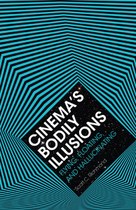 Cinema’s Bodily Illusions
Flying, Floating, and Hallucinating
Scott C. Richmond
2016 Fall
Cinema’s Bodily Illusions
Flying, Floating, and Hallucinating
Scott C. Richmond
2016 Fall
- On the history and theory of perceptual illusions in cinema
-
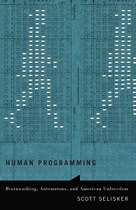 Human Programming
Brainwashing, Automatons, and American Unfreedom
Scott Selisker
2016 Fall
Human Programming
Brainwashing, Automatons, and American Unfreedom
Scott Selisker
2016 Fall
- The first cultural history of the idea of the programmable mind in U.S. culture, from the Cold War to the War on Terror
-
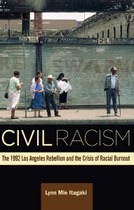 Civil Racism
The 1992 Los Angeles Rebellion and the Crisis of Racial Burnout
Lynn Mie Itagaki
2016 Spring
Civil Racism
The 1992 Los Angeles Rebellion and the Crisis of Racial Burnout
Lynn Mie Itagaki
2016 Spring
- Examines how the preservation of civility comes at the expense of racial reconciliation and justice
-
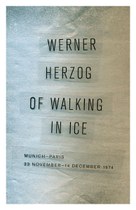 Of Walking in Ice
Munich–Paris, 23 November—14 December 1974
Werner Herzog
2015 Spring
Of Walking in Ice
Munich–Paris, 23 November—14 December 1974
Werner Herzog
2015 Spring
- Filmmaker Werner Herzog’s remarkable account of his journey on foot from Munich to Paris
-
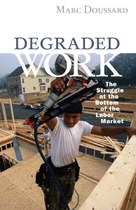 Degraded Work
The Struggle at the Bottom of the Labor Market
Marc Doussard
2013 Fall
Degraded Work
The Struggle at the Bottom of the Labor Market
Marc Doussard
2013 Fall
- Why service-sector jobs have gotten worse—and what can be done to improve pay and working conditions for low-wage workers
-
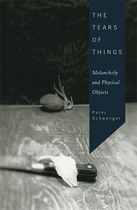 The Tears of Things
Melancholy and Physical Objects
Peter Schwenger
2005 Fall
The Tears of Things
Melancholy and Physical Objects
Peter Schwenger
2005 Fall
- Reveals the object as the self’s ultimate other
-
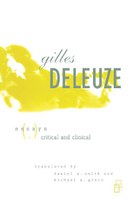 Essays Critical and Clinical
Gilles Deleuze
1997 Fall
Essays Critical and Clinical
Gilles Deleuze
1997 Fall
- The final work of this essential thinker
-
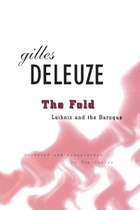 The Fold
Leibniz and the Baroque
Gilles Deleuze
1992 Fall
The Fold
Leibniz and the Baroque
Gilles Deleuze
1992 Fall
- In The Fold, Gilles Deleuze argues that Leibniz’s writings constitute the grounding elements of a Baroque philosophy and of theories for analyzing contemporary arts and science. A model for expression in contemporary aesthetics, the concept of the monad is viewed in terms of folds of space, movement, and time. Similarly, the world is interpreted as a body of infinite folds and surfaces that twist and weave through compressed time and space. According to Deleuze, Leibniz also anticipates contemporary views of event and history as multifaceted combinations of signs in motion and of the “modern” subject as nomadic, always in the process of becoming.
-
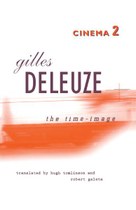 Cinema 2
The Time-Image
Gilles Deleuze
1989 Fall
Cinema 2
The Time-Image
Gilles Deleuze
1989 Fall
- Brings to completion Deleuze’s work on the implications of the cinematographic image. In Cinema 2, Deleuze explains why, since World War II, time has come to dominate film. Among the filmmakers discussed are Rossellini, Fellini, Godard, Resnais, Pasolini, and many others.
-
 The Differend
Phrases in Dispute
Jean-François Lyotard
1989 Spring
The Differend
Phrases in Dispute
Jean-François Lyotard
1989 Spring
- “This work is of vital importance in a period when revisionism of all stripes attempts to rewrite, and often simply deny, the occurrence of historical and cultural events, i.e. in attempting to reconstruct ‘reality’ in the convenient names of ‘truth’ and ‘common sense.’” French Review
-
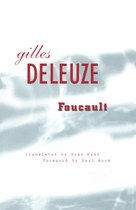 Foucault
Gilles Deleuze
1988 Spring
Foucault
Gilles Deleuze
1988 Spring
- The first analysis of Foucault’s work by a major philosopher working within the same poststructuralist tradition.
-
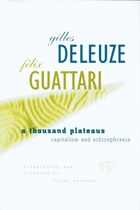 A Thousand Plateaus
Capitalism and Schizophrenia
Gilles Deleuze and Felix Guattari
1987 Fall
A Thousand Plateaus
Capitalism and Schizophrenia
Gilles Deleuze and Felix Guattari
1987 Fall
- A positive exercise in the affirmative, “nomad” thought called for in its companion volume, Anti-Oedipus. This series of essays address war and death, territoriality and the anthropology of groups, model theory, and psychosis.
-
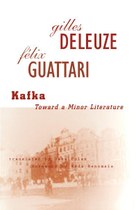 Kafka
Toward a Minor Literature
Gilles Deleuze and Felix Guattari
1986 Fall
Kafka
Toward a Minor Literature
Gilles Deleuze and Felix Guattari
1986 Fall
- Instead of interpreting Kafka’s work according to pre-existing categories or literary genres, they propose a concept of “minor literature”—the use of a major language that subverts it from within.
-
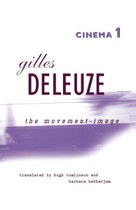 Cinema 1
The Movement-Image
Gilles Deleuze
1986 Fall
Cinema 1
The Movement-Image
Gilles Deleuze
1986 Fall
- A revolutionary work in philosophy and a book about cinema that identifies three principal types of image-movement using examples from the work of a diverse group of filmmakers including Griffith, Eisenstein, Cassavetes, and Altman.
-
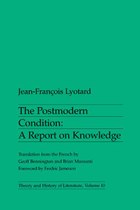 The Postmodern Condition
A Report on Knowledge
Jean-François Lyotard
1984 Spring
The Postmodern Condition
A Report on Knowledge
Jean-François Lyotard
1984 Spring
- This founding essay of the postmodern movement argues that knowledge-science, technology, and the arts-has undergone a change of status since the 19th century and especially since the late 1950s.